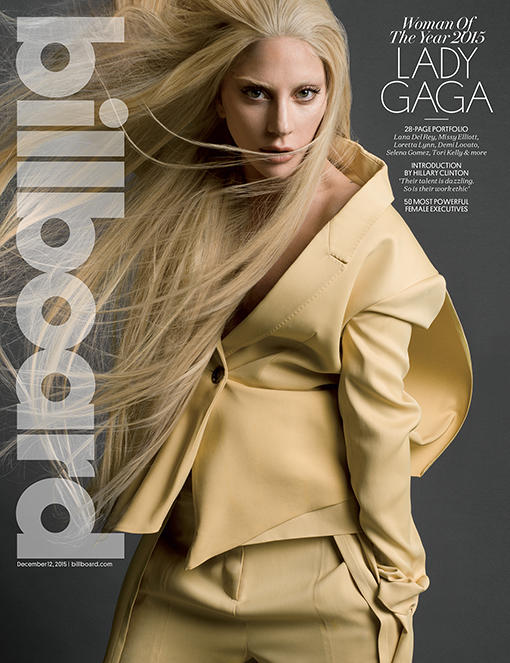You’ve met thousands of people who’ve been affected by the Born This Way foundation. Who is someone you can’t forget?
Lady Gaga: There are a lot of kids that I could talk about. One I’ve become very good friends with is this girl, Emma. She has cerebral palsy. She’s in a wheelchair. I met her on the [2013] Born Brave Bus, when it followed the Born This Way Ball Tour, and we shared a very deep connection about the pain she was in. There were all these people around — cameras and journalists wanting to capture the moment between us — and I said to everyone, “Could you leave us alone?” I just wanted to be alone with her and ask her if she was OK. She was in her chair, kind of hunched over, but still with this very brave smile on her face. I swore I was in the presence of maybe one of the greatest people. Moments like that make you go, “Everyone should learn from this person — this person knows what it means to self-empower through adversity, this person knows what it means to be strong when you’re not.”
When you’re listening to these kids’ stories, what’s the fundamental problem?
Lady Gaga: Depression and anxiety really link them. There is something in the way that we are now, with our cell phones and people are not looking at each other and not being in the moment with each other, that kids feel isolated. They read all of this extremely hateful language on the Internet. The internet is a toilet. It is. It used to be a fantastic resource — but you have to sort through shit to find the good stuff.
These kids just want to feel human, but they feel like robots. They don’t understand why they’re so sad. There are scientific reasons, which the foundation researches, why you feel sad when you look at your phone all day.
I’ve suffered through depression and anxiety my entire life, I still suffer with it every single day. I just want these kids to know that that depth that they feel as human beings is normal. We were born that way. This modern thing, where everyone is feeling shallow and less connected? That‘s not human.







